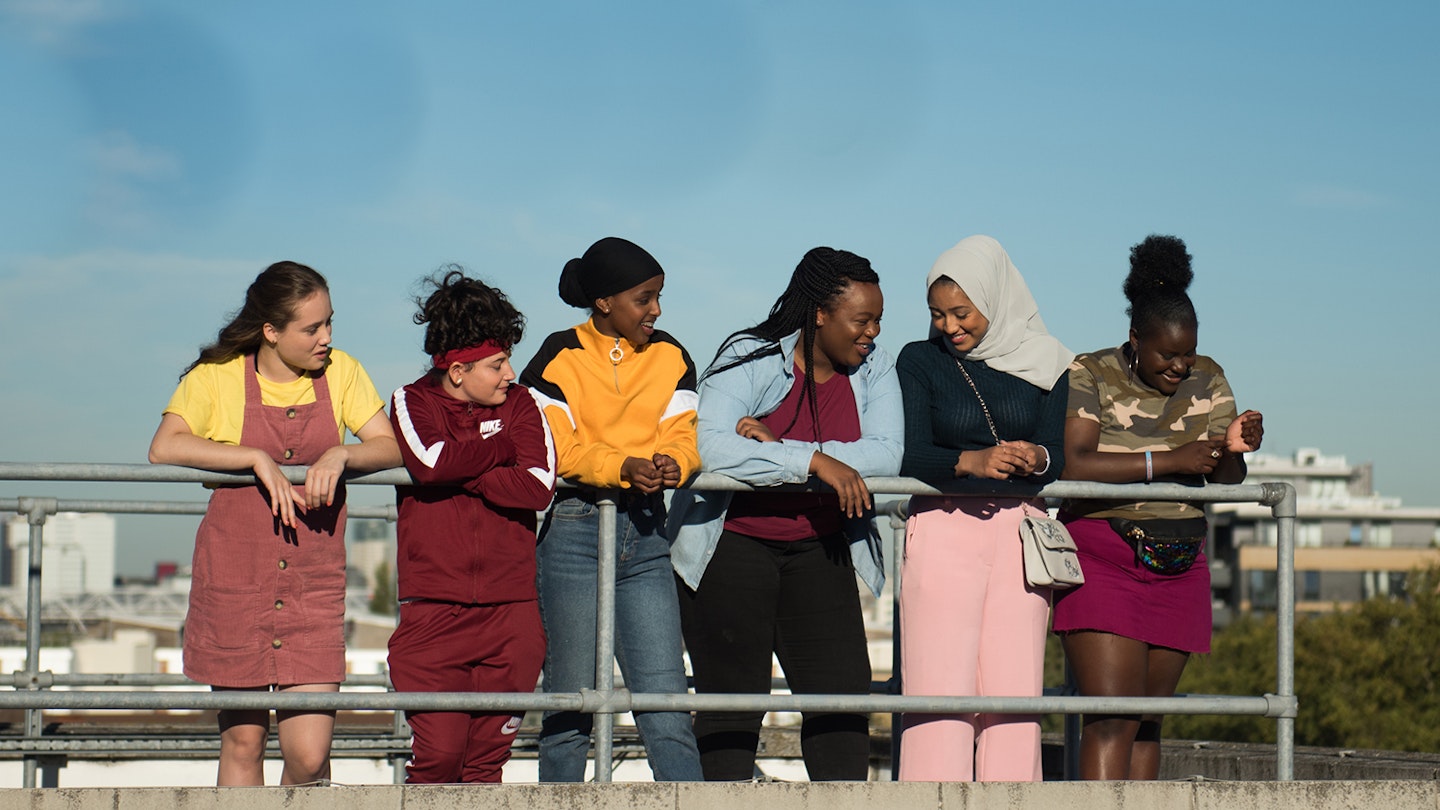Before Lockdown loomed, Empire got to see one of the most striking British films in years – a vibrant, vital coming-of-age story about teenage girls of colour living and surviving in London, featuring a dazzling cast of unknowns. That film was Rocks, directed by Sarah Gavron – who worked in close collaboration with writer Theresa Ikoko and a predominantly female crew to draw an authentic screen portrait of brown and black London girls. It’s a remarkable, must-see movie – but one that, like many, saw its release date pushed back significantly by the Coronavirus pandemic. Now as it finally reaches cinemas, read Empire’s feature about the extraordinary making of a truly extraordinary film.
———
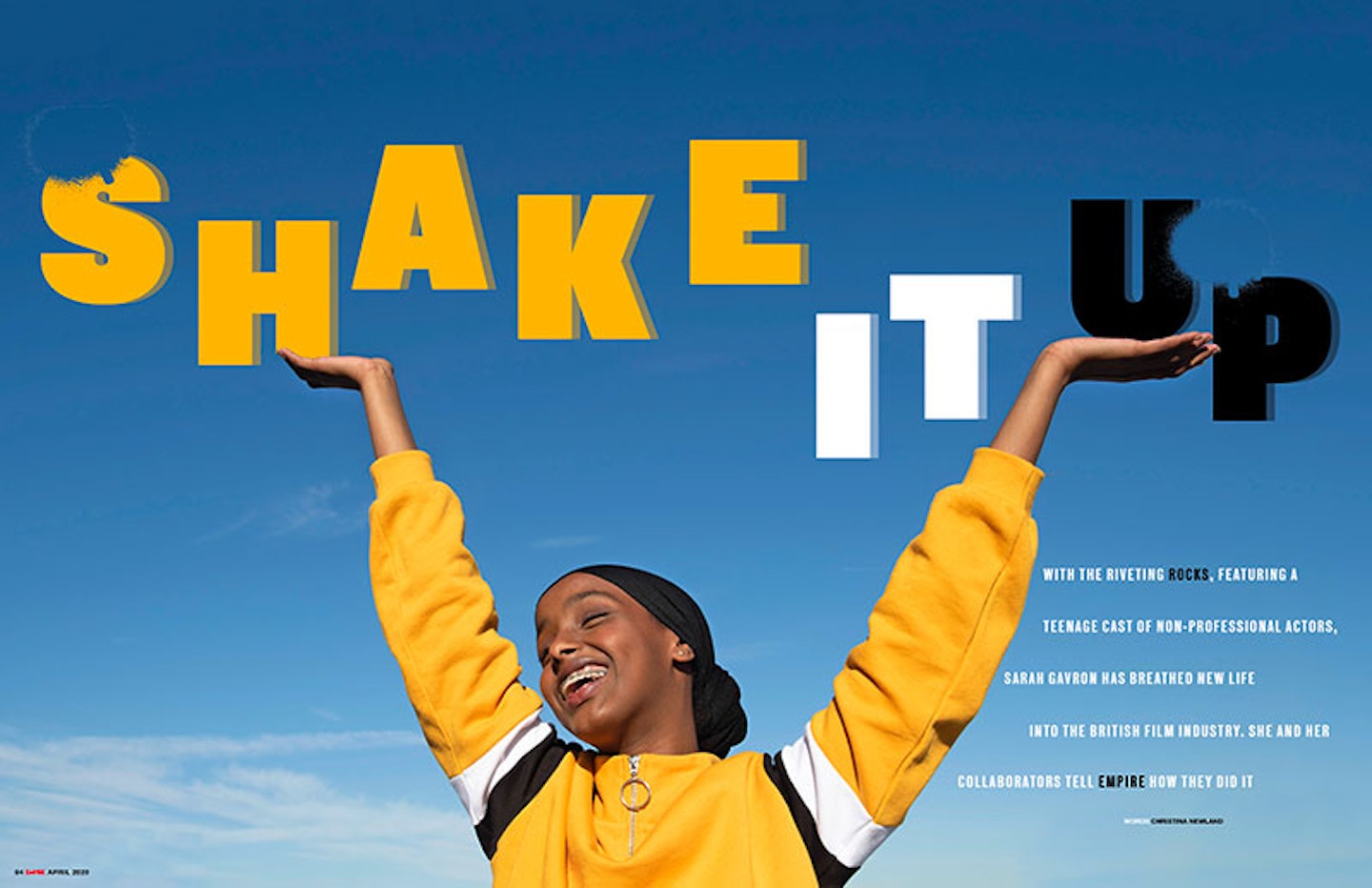
Rocks is a coming-of-age film that makes us rethink what that term means — and its production was just as refreshing. An authentic British story of, mostly, black and brown girls, its cast is populated by teenagers who hadn’t acted before, with a 75 per cent female crew. It is also a markedly different project for the director, Sarah Gavron. Her last film, 2015’s Suffragette, featured a star-studded cast and reasonably-sized budget. Rocks was less conventional from the start, and wholly collaborative from the ground up. “Everybody has a voice, and people were able to contribute because they were connected to the world and to the story,” Gavron tells Empire.
She wanted to tell a story about the girls she used to see around London as she grew up — young women not seen on screen nearly enough. Revelling in the anecdotal details of a London schoolgirl’s daily life, in loose, quasi-documentary style, the film tells the story of Shola, aka ‘Rocks’ (Bukky Bakray), and her friend Sumaya (Kosar Ali). After her mother abruptly disappears, Rocks tries to keep things together while looking after little brother Emmanuel (D’angelou Osei Kissiedu), whom she protects with a heart-wrenching determination.
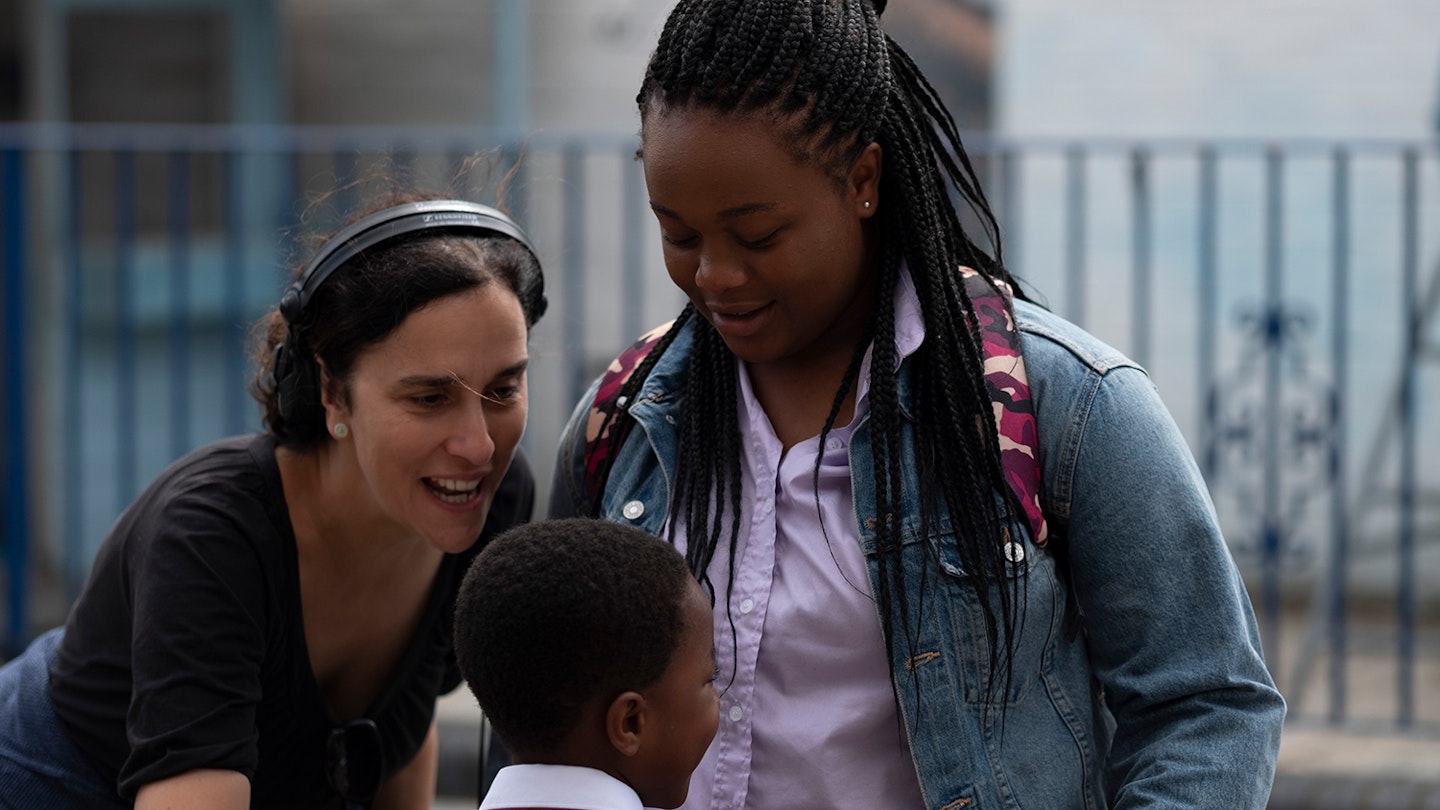
It was an unconventional, organic production. In financing terms, the film was hardly a guaranteed greenlight: here was a film with loose plot strands, featuring a cast of unknown and mostly non-professional teenage actors, talking in accents and about topics that were culturally and locally specific. And even after schoolgirl Bukky Bakray was in place as the central character, with Kosar Ali as her best friend Sumaya, nearly 11 months had gone by without a firm narrative in place.
As many women in the film industry can attest, a boy’s coming of age story is often seen as a default-setting for universal relatability, while a girl’s — particularly a Black girl’s — is deemed niche. Not so for Gavron’s team, who, with help from the BFI, Film4 and the Wellcome Trust, were able to hold together funding — and crucially, faith — in the movie as it was developed. “Rather than it being a film that I directed and led, I was more a kind of facilitator,” Gavron explains. “We didn’t want to make a film where we impose an idea on these kids. We wanted to build a story with a group of women, where we were like big sisters to them, and we wanted to build a film with them.”
I thought about all of these girls. I wanted to say thank you to all of them and tell them that they are worthy – Theresa Ikoko
“I call Sarah Gavron a Trojan horse,” says Theresa Ikoko, the playwright and first-time screenwriter who came up with Rocks’ story during the workshopping process. “Her name and her reputation can release the kind of funds that mine can’t,” she says of Gavron. “There wasn’t even a plan. There wasn’t a story. But through the Trojan horse came black and brown storytellers, filmmakers and actors, who were able to tell stories about our own community.” It’s rare to hear screenwriters and directors speak so openly about the fluidity of their creative roles. On Rocks, there was no egotism.
———
“The story started as a love letter to brown and black girls,” says Ikoko, who had begun writing a script with The Little Drummer Girl screenwriter Claire Wilson, but then, with the pair of them agreeing that it didn’t accurately reflect the environment they were exploring, Ikoko started again with her own story. Her older sister Tracy, she says, always protected her when they were kids, allowing a space for her to be a child. Ikoko wanted to say thank you to her, to show her that she knew people viewed her as tough, but that she saw “all the soft parts and the reasons why she had to be hard. Then I thought about all the black and brown girls who have to grow up so much quicker in this country than their white counterparts. Whether it be because of extra responsibility at home, or the threat that black skin proposes to people for no other reason than the colour of skin. And I thought about all of these girls. I wanted to say thank you to all of them and tell them that they are worthy.”
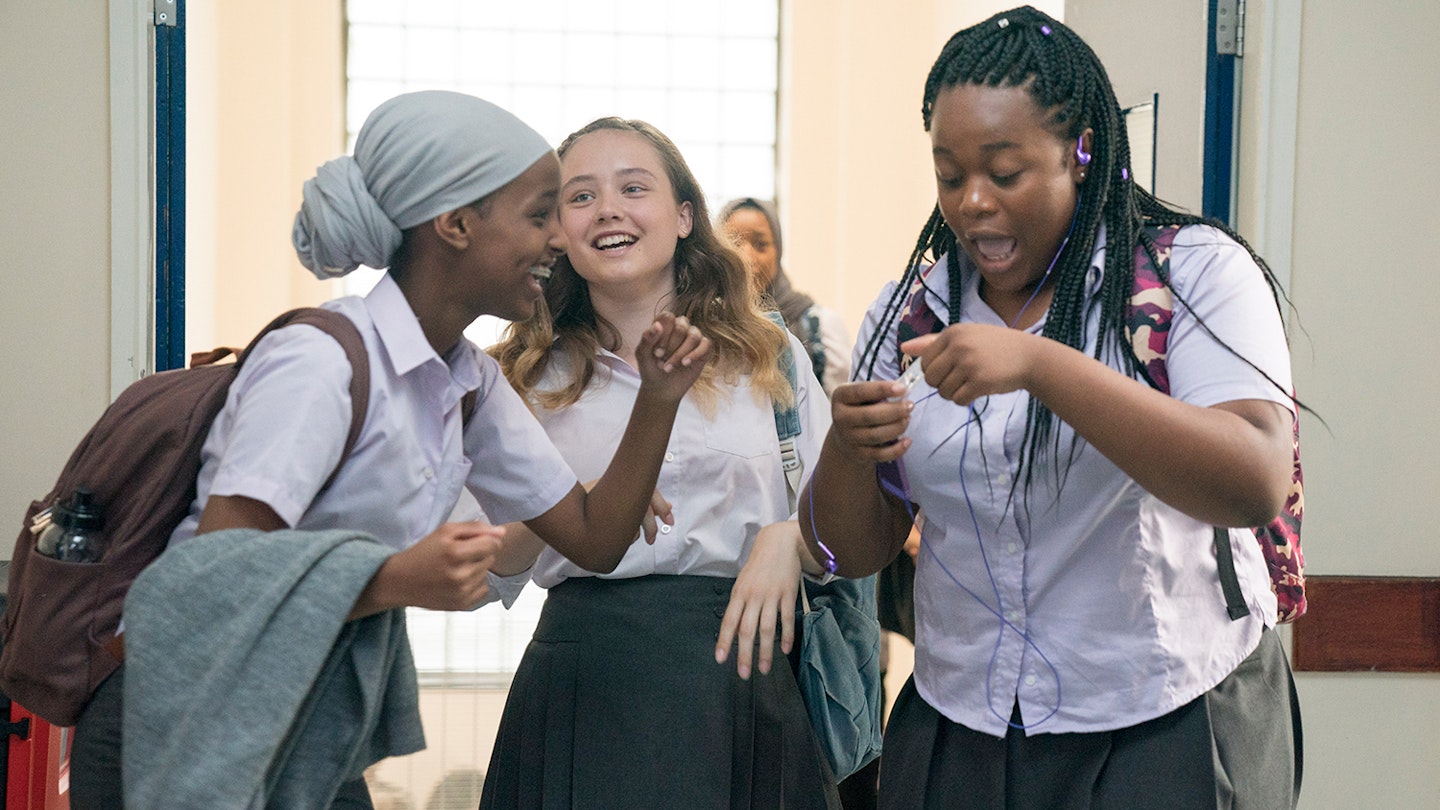
Having spent a couple of years securing funding, Gavron and her producer Faye Ward eventually secured £3 million — and even that part of the production, says Gavron, was more collaborative than usual. “We had the production company who had made Suffragette, who we had a long working relationship with, which meant that they went on the journey with us,” says Gavron. “We had to film bits of the workshopping process to show the financiers the young people we were honing in on.”
With Ikoko’s story as a starting point, she and Wilson worked on the script, substantially reworking it throughout the process of scouting for teenagers in London schools. “The casting essentially happened on the job,” says Wilson. ‘So immediately that was exciting to me. I had never worked like that before.”
After casting director Lucy Pardee visited schools, looking at around 1,300 girls, Gavron, Ikoko and Wilson began tagging along, meeting some of them, talking to them about their lives. From there they chose 30 girls and ran workshops for nearly a year, with the teenagers openly discussing their romances, social media, and school. The kids did writing exercises, listened to music, danced, and spoke about whether various bits of dialogue or plot felt authentic to them. From there, the girls where whittled down to 12, and then seven. “We were very lucky that we started writing quite a while after we’d spent time with the girls,” says Ikoko. “So naturally their magic infected us.”
When Ikoko and Wilson first met Bukky Bakray, they didn’t immediately envision her for the lead role. But Ikoko and Bakray — both British-Nigerian and from Hackney — hit it off, and the script was soon rewritten to fit better around Bakray. “Bukky was very thoughtful,” says Ikoko. “She was thinking a lot more than the other girls seemed to be, like her mind was on bigger things. But then one day something happened and she burst out into laughter and everything just shattered. It was like this volcano of joy in the room. And I looked at her and I saw a child. Immediately, she reminded me of my sister, who looks like she is in charge of the world. But then smiles like she’s never had a problem in her life.” With Bakray cast as Rocks, the script was written in earnest — but was never used as a bible.
Instead of a screenplay being handed over to the young cast, the writers shared chunks of the story with them for feedback. “The girls were never going to see the dialogue,” says Wilson. “Sarah wanted them to feel fresh and ad-lib in scenes. We pitched the film to them over two days — we put the big scenes on a wall, and got them to Post-it Note it and say what was good or bad. So it went to the next stage of collaboration, sitting in a room with a bunch of 14- and 15-year-old girls who are very honest with you. If you ever want to feel complete terror, pitch your film about 15-year-old girls to a bunch of 15-year-old girls!”
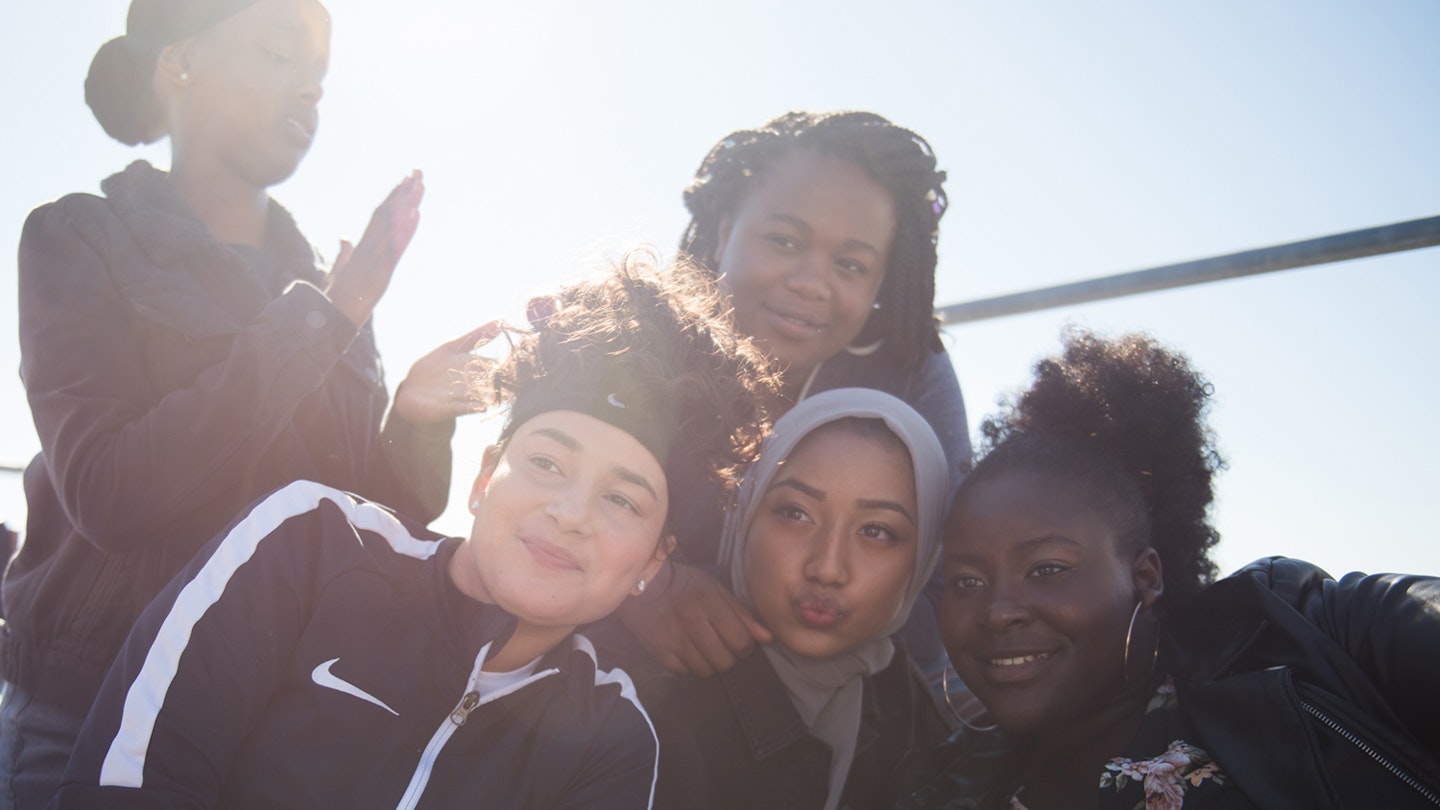
The film was also shot chronologically, to help the inexperienced young actors get a sense of momentum within the story. The cast was always the focus of the production, and with so many teenagers around, music inevitably played a significant role in the film. In one early scene, the girls break into what Gavron describes as a completely spontaneous rendition of Tina Turner’s ‘Proud Mary’. “Bukky’s an old soul,” says Kosar Ali. During their workshopping days, the girls had been encouraged to share the soundtracks to their lives and the songs they thought told important stories about their communities. Gavron incorporated many of them into the soundtrack.
This was just one layer of naturalism in Rocks. The girls’ back-and-forths about boys, music, tampons and school uniforms are often hilarious, but never in the posturing, ironic way sometimes adopted by adults when writing lines for teenagers. Speaking to Gavron, there seems no evidence of auteurism. “It was mostly just, ‘How can we capture these young people as they are?’” she says of the stylistic choices. “That was our guiding ethos. Our DP, Helene Louvart, and Rachel Clark, who was on second camera, worked to kind of dance around the girls, and find ways to capture the performances. So, that was the kind of guiding principle rather than any other stylistic imposed ideas. The major principles we had was that we would shoot on location, in a real environment that sounded as real as possible.”
We had a very female crew. The young women on screen would look behind the camera and imagine one day they want to do that – Sarah Gavron
Anything deemed inauthentic was immediately vetoed by the outspoken cast of girls on set; and, as Gavron explains, “We’d never say action. And we wrote all the time. In a way, much like you might do in a documentary where you’re capturing life rather than staging it for the camera. And we tried to make it as uninhibited as possible. We had a very female crew and a lot of them came from a similar background. So the feeling was that, you know, the young women on screen would look behind the camera and identify with the crew, and imagine one day they want to do that. So we felt very much like a family.”
When Bakray needed encouragement during a tough scene, Ikoko was on hand. “Have your Viola Davis moment,” Gavron remembers as her motivational line. It seemed to work; after the pep talk, Bakray gave a beautiful performance. This collaborative attitude helped to collapse the traditional hierarchy of director/screenwriter, particularly on one occasion when a pivotal scene was not quite working. “One day Sarah came to me,” remembers Ikoko, “and she said, ‘Why don’t you come in and block out the scene with the actors?’ So I went into the house, shut the door, and talked through the scene about where people should be standing. And then I went off and had a good 40 minutes with Bukky where we talked over the theme and I tried my best to encourage her. Then the first AD gave me her headpiece and mic so I could speak directly to Sarah. I had this moment where I thought, ‘Oh my gosh, this is what I want to do.’ I wanted to create these stories. I would never have considered myself in that role, but because I was surrounded by women who cared, and wanted to see me flourish.”
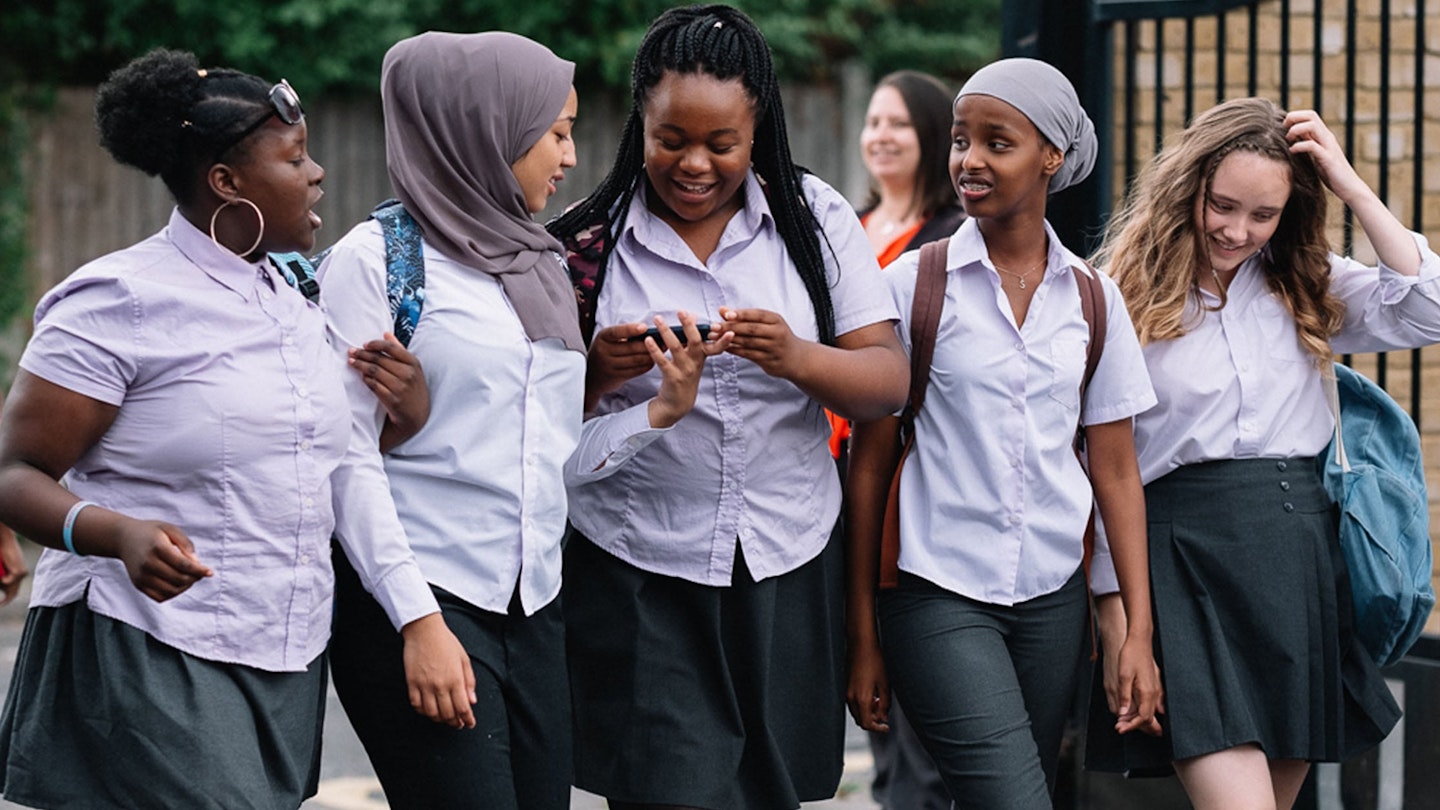
This was undoubtedly helped along by the fact that the crew was approximately 75 per cent female, deliberately chosen by Gavron and Louvart — Gavron wanted the cast to see a female crew, people they might aspire to be. This dream of an encouraging, collective feminist film set was, for some of the team, an eye-opening experience. “Hearing about how the industry is so patriarchal and that there’s a lack of women in the industry… a lot of people on set kept saying how different it was,’” says 16-year-old Bakray. “It was more comfortable, seeing women older than us doing those jobs,” adds Kosar Ali. “Seeing how inspiring they are. A lot of the jobs we saw, we didn’t think they were feasible before that.”
Writer Clare Wilson was just as impressed. “It was such a female crew. It was incredible. Normally it’s quite a masculine environment. I remember, significantly, there being a tampon sitting on one of the monitors for a week. Like, ‘This is ready, if anyone needs it!’ But for the girls… I don’t believe we’d have got the same performances from them if it was a bunch of male gaffers, grips, whatever. It would have changed the energy. Especially when you’re at that age, being around the opposite sex —regardless of who you’re attracted to — it changes how you present yourself. And they just didn’t have that.” The results on screen are almost as though the cameras are invisible.
———
Rocks has the fleet-footed, mobile approach that borrows from those grand old European movie traditions — Italian Neorealism in its urban docu-realism and concern for the working class, French New Wave in its incidental, off-the-cuff humour and playful integration of popular music. The unfolding series of events in Rocks’ life are filmed unobtrusively, with an inclination toward handheld shots and a smattering of shots from an iPhone.
The realism of the style matches subject matter, where there’s a refusal to shy away from the hard truths of Rocks’ descent into rage and confusion. Yet there’s no trace of kitchen-sink miserablism in the film; it’s too buoyant, and its lead performance too luminously hopeful. “I thought that these are the complexities and the beauty of black girls. An endless capacity for joy, brilliance, compassion,” says Ikoko, thinking back to when she first met Bakray. “For taking on the burdens of the world, but then also protecting, and holding all this love. It’s such a contradiction. It’s such a huge task. But in my experience, I’ve seen Black women do it successfully over and over.”
The writer is passionate, she says, about the responsibility of who tells these stories. “Why they tell stories, and the impact they have on the people the stories are told about. I think those are really important things. I want to make sure that my work is about that and I hope that we can — in our little ways — begin to dismantle this patriarchal, exclusionary, elitist industry. I’m over looking for gatekeepers to give us permission.”
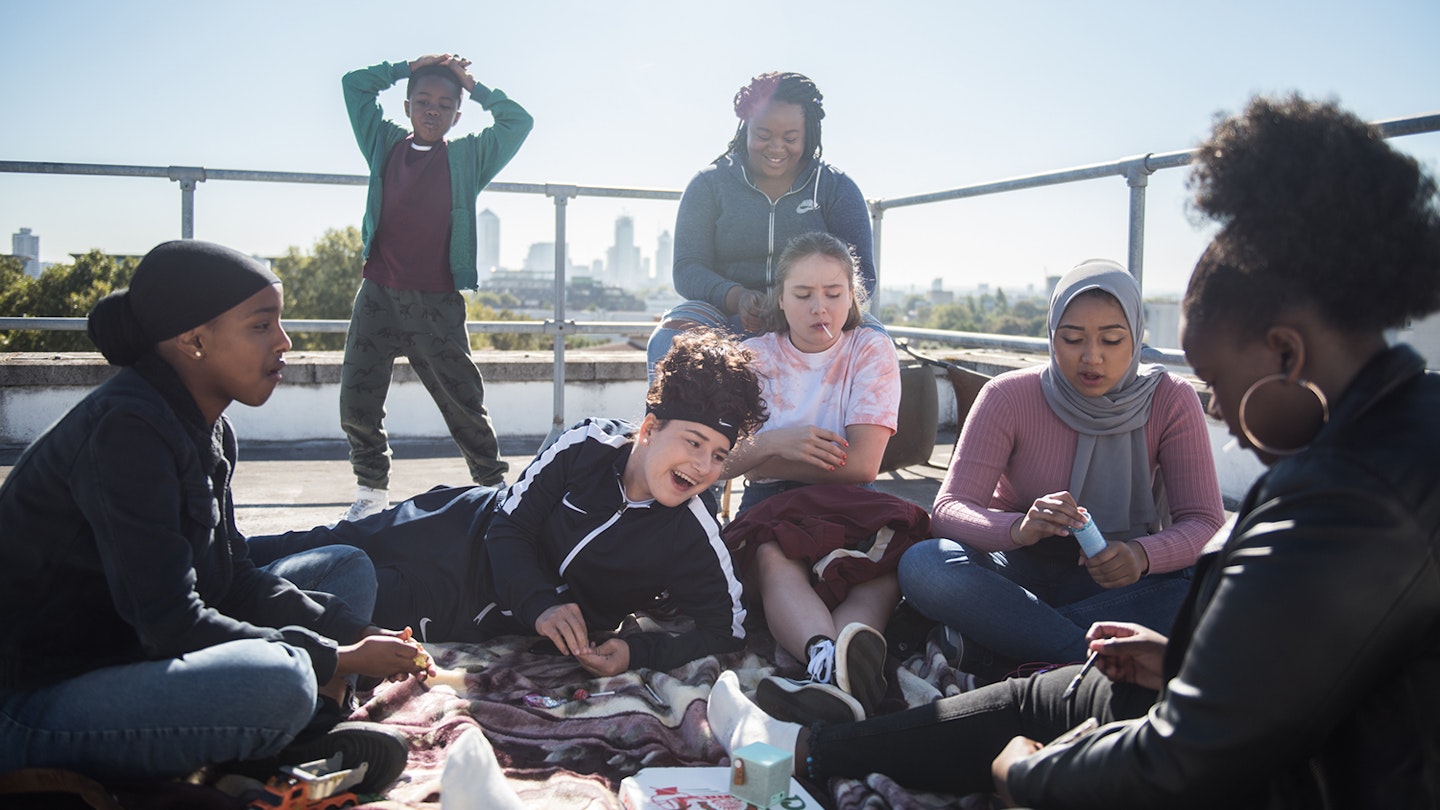
Resilience is a running theme in Rocks, where the girls have the capacity to find joy in the direst of circumstances. And in spite of moments that teeter on the edge of tragedy, the storytelling never feels schematic. As Rocks sits on the beach laughing with her friends, or stares forlornly through school gates and sees a totally different future for someone she loves, there’s an overwhelming sense that British cinema is seeing a new story, a new perspective, and a desperately needed rallying cry for a very different type of filmmaking to go along with it.
Rocks is in UK cinemas from 18 September.
